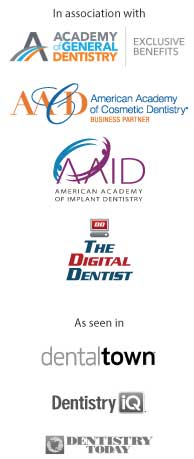Dentists need to have excellent inter-personal skills in order to work effectively with their patients. These skills form the foundation of rapport, a positive patient-dentist relationship, that leads to greater patient satisfaction.
Rapport is critical. For the patient, establishing rapport informs the patient’s estimation of the dentist’s clinical competence, and enhances the dentist’s ability to communicate effectively with patients and can contribute significantly to improved case acceptance and treatment results.
What is Rapport?
Rapport is the degree that you are able to relate with your patient. When your dental patients know you, like you, trust and respect you, you have strong rapport. And the quality of rapport you are able to develop with your patients sets the “tone” for their entire experience in your practice.
Establish strong rapport and everything – from the patient showing up for their appointment to referring friends and family – is easy. Miss out on developing rapport in the beginning of the patient experience and you will be looking at an uphill battle to serve the patient to the best of your ability.
Three tips for building rapport
There are three ways we build rapport with not only patients, but all people:
- Words. Choose the language you use with and around patients carefully. Instead of saying, “your teeth are horrible,” say, “we can make some improvements to your smile.” But even as powerful as words are to rapport, language accounts for only a small part of the overall equation.
- Tone, tempo, and tonality. Being mindful of pitch, speed, and the quality of your voice can go a long way to enhancing trust and likability. On the flip side, rushing, impatience, or a bad mood… all of those things are very destructive to rapport.
- Body language. Non-verbal communication is a critical component of developing rapport. The way that you hold yourself and how you related physically with patients is important. Google “positive body language” for ways to improve your interactions with patients.
So the old adage is true, “It is not what you say, but how you say it.” If your goal is to establish long-term effective relationships with patients, then you must work on rapport.
You are invited to attend a free training webinar: Dental Practice Excellence, where we examine some of the most common issues keeping dental practices from achieving their ultimate success.









